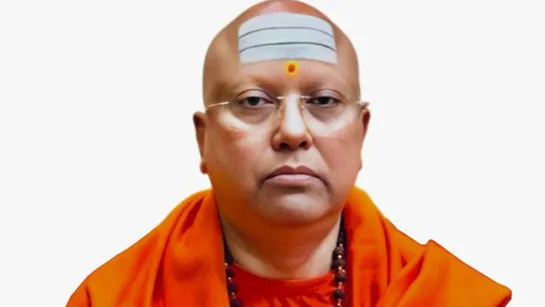Delhi Police are on the hunt for a self-styled godman accused of multiple sexual assault charges who has reportedly been using disguises to evade arrest. The case has once again spotlighted the dark underbelly of so-called spiritual leaders who exploit faith and vulnerability for personal gain, raising concerns about accountability and law enforcement challenges.
According to investigators, the accused—popularly known as a “Baba” among his followers—went underground soon after cases of sexual assault were formally registered against him. Sources reveal that he has been altering his appearance frequently, shifting locations, and even using aliases to avoid detection. Reports suggest that he has been spotted in different districts of Delhi and nearby states, each time dressed differently—sometimes as a commoner, sometimes in religious attire, and occasionally in western clothing to blend into urban crowds.
Police officials admit that his use of disguise has complicated the manhunt. Despite multiple raids on his known ashrams and residences, he has managed to stay one step ahead of law enforcement. Authorities are now tracking his close associates and financial transactions in an attempt to narrow down his movements. Special teams have also been deployed to monitor bus stations, railway junctions, and pilgrimage routes where he could potentially hide among devotees.
The allegations against the Baba are grave. Several women have come forward accusing him of sexual assault under the pretext of offering “spiritual healing” and “divine blessings.” Victims allege that he manipulated faith and fear to coerce them, taking advantage of their trust in his so-called spiritual authority. For many, his disappearance has delayed justice and prolonged their trauma.
The case also highlights a recurring problem in India: the unchecked influence of self-proclaimed godmen who command large followings but operate outside institutional accountability. While many genuine spiritual leaders work for social upliftment, cases like this expose how faith can be weaponized to exploit vulnerable people. Critics argue that stricter monitoring of religious institutions and faster legal proceedings are essential to prevent such abuses.
Legal experts note that if the accused continues to evade arrest, he could be declared a “proclaimed offender,” which would allow authorities to seize his assets and intensify the crackdown. However, such measures also take time and require coordination across states. In the meantime, the victims and their families remain anxious for justice.
Civil society groups have demanded swift action, arguing that prolonged delay undermines public confidence in the justice system. Women’s rights activists, in particular, stress that hiding behind religion or spiritual identity should not provide immunity from accountability. They have urged authorities to send a strong message by ensuring the Baba is brought before the law without further delay.
The case is being closely followed not only for its criminal dimension but also for its social implications. It raises uncomfortable questions about blind faith, the role of community leaders, and the vulnerability of devotees who often place unquestioning trust in spiritual figures.
For now, the Delhi Police remain on high alert, intensifying efforts to track down the fugitive Baba. As pressure mounts from both the public and victims, the case is likely to test the state’s ability to balance religious sensitivities with the uncompromising need for justice.



